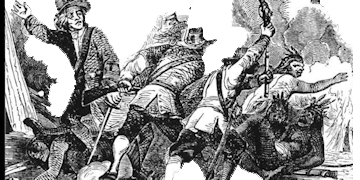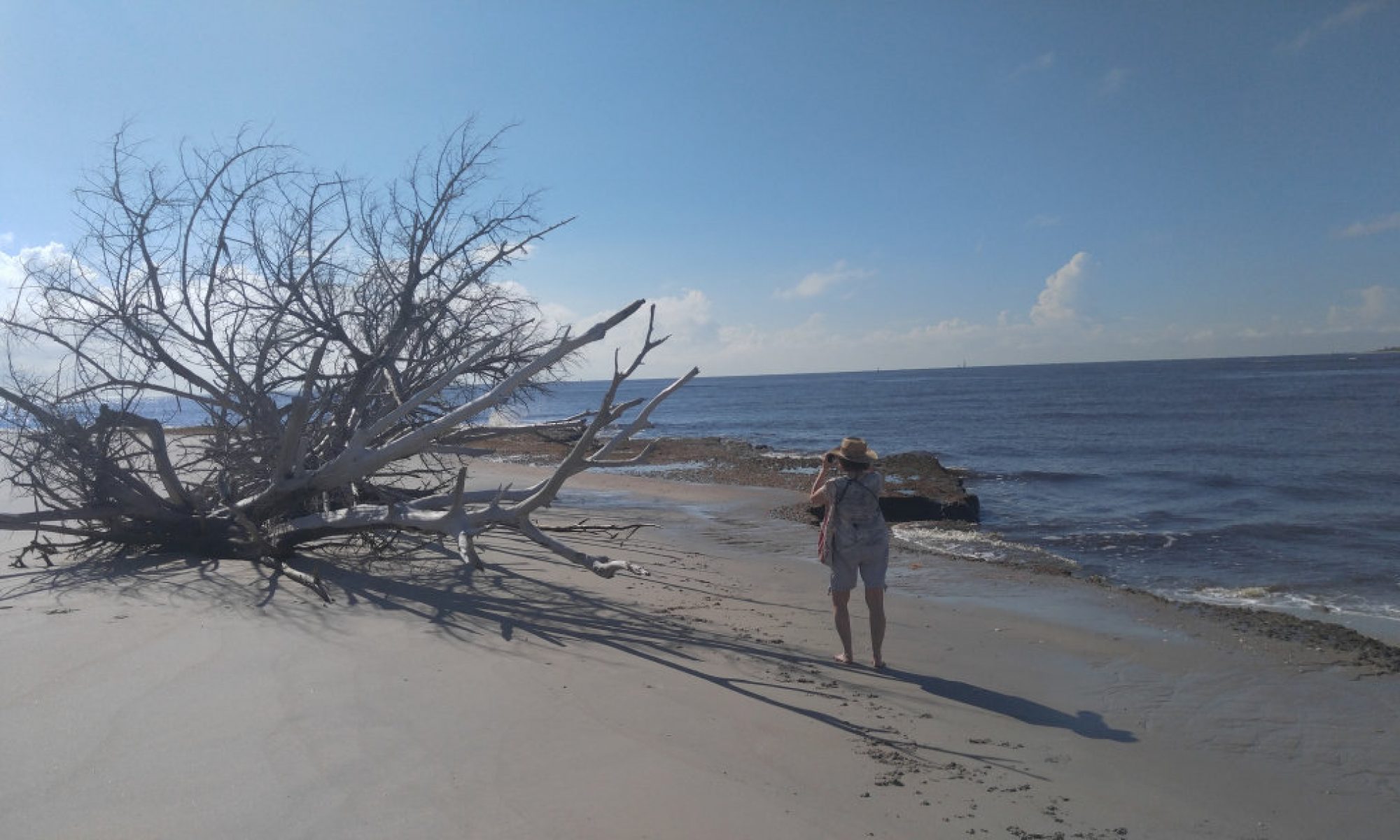“History is written by the victors.”—Winston Churchill
“Party on!” — Squanto, a Patuxet Party Planner
Author’s note: I’d like to thank the research department at Pilgrims’ Progressive, a slick tabloid published rarely, in Plymouth, MA, for their almost unbelievable efforts on my behalf, for finding the only known Wampanoag (the Native Americans at Plymouth, also called “People of the First Light”) account of the 1621 Thanksgiving feast. While it was written several years after the fact and there is no record of the author’s name, his(?) observations and insights provide a look at the Pilgrims from the moment they landed in 1620 to the last day of the feast that has never really been depicted before — from the Wampanoag’s side of the table, so to speak.
While the original was written in the pictographic language of the Wampanoag, and some might say, therefore, it is “open to interpretation,” I think my research team at Pilgrims Progressive did a bang-up job. (N.B.: Time is expressed in “European” years because the moon “calendar” [i.e. “blood moon”, wolf moon”, harvest moon”, “once in a blue moon”, “moon over Miami”, etc.] used by the Wampanoag didn’t catch on with the Pilgrims until Ben Franklin’s moon-based “Poor Richard’s Almanack was published in 1732.)
In 1600, there were about 12,000 Wampanoag people. When the Pilgrims first landed at or near Plymouth Rock in 1620, there were about 2,000 left because of the gift brought by earlier Europeans immigrants: smallpox. Not to put too fine a point on it, but by 1676, at the end of “King Phillips War ” (aka” “The First Indian War” — see image below) only 400 remained.
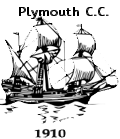
A further note: Due to the fact the manuscript was “discovered” during a recent renovation of the Plymouth Country Club’s Donald Ross course (originally built in 1908),, large backhoe teeth- marks on some of the leather pages made the pictographs illegible. If there are seeming historical “inaccuracies,” see Churchill quote above.
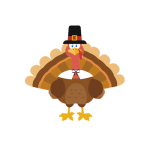
(Author Unknown)
“Our people had met their kind before. Having lived on this land for over 10,000 years, you’re bound to run into all types. Quite a while ago there was a really big guy with red hair all over his head and face. But that had to be like 1,500 years ago. Still, the stories have been handed down The Mi’kmaq, our neighbors to the north, say they still have some red-headed … (Unreadable.)
“In terms of farming, the timing of their arrival couldn’t have been worse. Try growing maize in November! They did pray a great deal. Many of the men shouted to the heavens something about God and a dam, which everyone here knew you built for fish weirs. Then they would hurl stones… (Unreadable.)
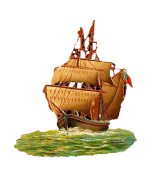
“I was there the day a few of them first piled out of their boat, the Mayflower. They were a sorry lot. My brother coined the term ‘ignorant savages,’ to describe them. The term, unfortunately, was spot on. They didn’t know our language and smelled to high heaven. Being naturally cautious we did not engage them immediately, but simply watched. Even the membership chairman of the Wampanoag Chamber of Commerce said he had his doubts. And that’s saying something! He never turned down anybody!
“That winter was difficult for them. They seemed to have little food. As has been our custom for centuries, we always bury our dead with enough food for them to make it to the next stage. We think that is rather sensible. We also think helping the helpless is a good thing. We made sure the newcomers ‘discovered’ these burial mounds where there was plenty of maize and beans and acorns and dried squash. If you’ve never had a nice hot bowl of venison squash stew on a cold winter night, you haven’t lived!
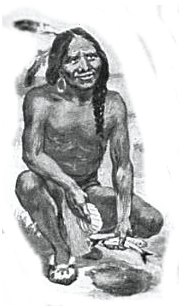
“Spring came early in 1621, and we watched these people start to plant. They had eaten most of the seeds for the new crop and didn’t know which end of the hoe to use. It was pretty pitiful. So we got our local agronomist to give some basic classes in raising maize, beans and squash. We also had the local representative of the NBAA (National Bow & Arrow Association) go over the fundamentals of bow hunting.
“As for hunting, they did show promise. They used something they called a ‘musket,’ which was basically, as much as we could figure, a long stick that made a lot of noise and smoke and scared away every living creature for miles around, including my brother and me. And speaking of miles, we did meet a fellow called Myles Standish. He was rather off-putting. Seemed to always be looking for a fight, and in fact… (Unreadable.)
“As to fishing, they were rather clumsy. They kept diving into the water trying to catch the fish in their hands. We showed them how to catch fish with weirs, spears and dip nets. We also showed them the proper method of drying their catch for the winter months.
“Our ladies showed their ladies where to find herbs for cooking and medicine. One of them, not the sharpest arrow in the quiver, kept referring to us as ‘savages,’ but our wise sachen, Chief Massasoit, told them, ‘We are all savages in the eyes of the Creator.’ Of course, their ladies didn’t understand Wampanoag.
“After a spell, we actually started to get along pretty well. Since about half their group had gone to the Happy Hunting Grounds over the winter, I guess they figured being good neighbors couldn’t hurt. They really got a kick out of the pumpkins that just kept growing and growing. But what really got most of the guys excited was the tobacco. We sat around the campfire with a few of the younger guys, took a couple hits off the pipe we passed around and just got silly.
“I also have to mention this interesting fellow, Squanto. He was a Patuxet, a tribe that had been entirely wiped out by disease. Squanto could speak their tongue (he’d been a slave, like three times), and acted as kind of an envoy between Chief Massasoit and the newcomers. First there was John Carver, but he had keeled over from heat stroke in the spring. Nice enough fellow. His replacement was Bill Bradford. So Bradford, Massasoit and Squanto, looking at the fantastic harvest that fall, decided it was time to throw a party. It was fabulous. Not surprisingly, everyone had seconds of the New England clam chowder. It was that good.
“And let me tell you, we ate like there was no tomorrow!… (Unreadable.)
